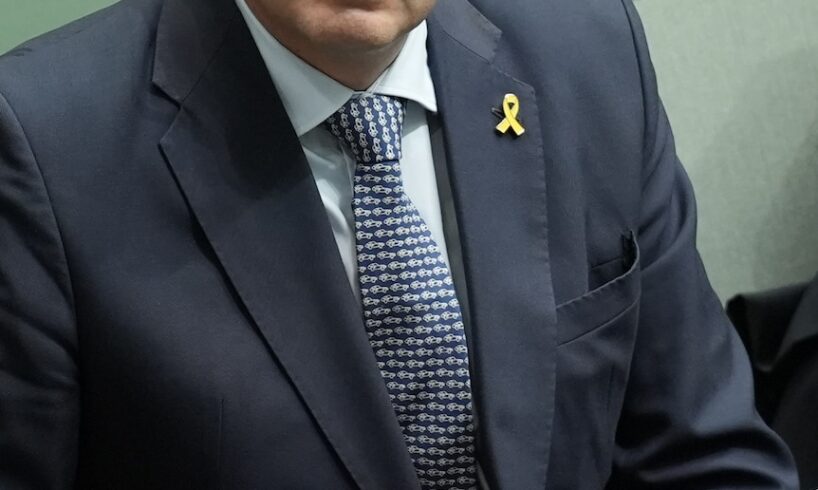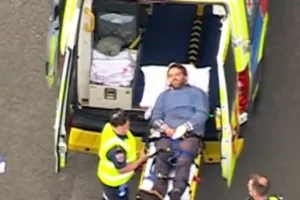
The Coalition’s most senior Jewish representative says the Albanese government bears some responsibility for Iran’s attacks on an Australian synagogue and restaurant because its criticism of Israel has “de-legitimised Jewish people”.
Julian Leeser, who is the shadow attorney-general, said on Sunday he stood by a statement he made in the wake of last year’s firebombing of Melbourne’s Adass Israel synagogue that there was a “direct line” between “the arsonist’s fuse” and the government’s United Nations voting record on the Gaza war.
“I don’t think I was [wrong],” Mr Leeser told the ABC’s Insiders.
“I think when you create a situation where you de-legitimise the Jewish state, which is what the government has been doing in relation to a series of votes at the United Nations, you de-legitimise Jewish people here.”
The federal government expelled Iran’s ambassador to Australia, Ahmad Sadeghi, this week following revelations from the spy agency ASIO that Iran’s Revolutionary Guard (the IRGC) was behind at least two antisemitic attacks on Australian shores and likely more.
How Iran’s antisemitic attack plot came undone
ASIO director-general Mike Burgess said the attacks were carried out by “cut-outs” paid by Iran, local criminals who may not necessarily have been aware who was funding their work.
Mr Leeser stopped short of saying those who carried out the arson attack had been inspired by the Albanese government, but said the government had created “an atmosphere” that allowed people in Australia to “think, why not go and firebomb a synagogue?”
Coalition frontbenchers strike different tones
Opposition Leader Sussan Ley promptly declared her party’s support for the government’s handling of this week’s Iran revelations, which also included a plan to amend the criminal code so that the IRGC can be listed as a terrorist organisation.
But Ms Ley and her colleagues say that listing should have happened earlier, something the Coalition called for in opposition but did not enact in government.
There has been a drastic contrast in tone between different Coalition frontbenchers, with a more conciliatory and bipartisan tone taken by Ms Ley and home affairs spokesperson Andrew Hastie but more strident criticism from foreign affairs spokesperson Michaelia Cash and from Mr Leeser, who told 2GB on Wednesday he was “incandescent with fury” that the government hadn’t listed the IRGC earlier.
“I only have condemnation for Anthony Albanese and his government,” he said.
“I’m furious that it has taken these people two-and-a-half years to do the right thing and that they had to be dragged kicking and screaming.”
Mr Leeser told Insiders he believed the killing of Mahsa Amini in 2022 “changed everything” and would have been the appropriate moment to list the IRGC.
“The real change in relation to the IRGC occurred after the Amini murder. I represent the fourth-largest Persian community in the country,” he said.
“I remember having meetings in my office where they would bring telephone-book-sized documents showing photographs [of people who] had been disappeared by the regime.”
Earlier, Environment Minister Murray Watt said the government had acted swiftly and appropriately.
“Within 24 hours of receiving the advice from ASIO that Iran were definitively behind some of these attacks, we’ve taken this action,” he told Sky News.
“We’ve acted in accordance with security advice.”





